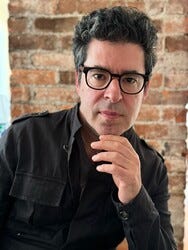Elite-on-elite violence
Philosopher Jason Stanley on the battle royale between America's cultural and economic elites
Was the 2024 election really a rebellion against the elites?
Philosopher Jason Stanley, whom we last spoke to back in October about his latest book, Erasing History: How Fascists Rewrite the Past to Control the Future, has some questions about exactly how Americans look at elites, which ones they admire and which ones they detest, and how the elites themselves have played on those perspectives in the struggle for power. So as we continue our series of conversations with writers and thinkers on how the election may have upended their priors and preconceptions about American politics and Americans themselves, we reached out to Stanley to explore those very questions.
Stanley talked to us about how pundits and commentators have represented the 2024 race as a backlash against elites; about exactly who America’s cultural and economic elites are, and how Republicans have been so successful at conflating cultural and economic elites to the benefit of the latter; how educators are joining forces to prepare for the coming attacks on education; and why exactly a backlash to elites would take the form of backing JD Vance and not Tim Walz.
We hope The Ink will be essential to the thinking and reimagining and reckoning and doing that all lie ahead. We want to thank you for being a part of what we are and what we do, and we promise you that this community is going to find every way possible to be there for you in the times that lie ahead and be there for this country and for what it can be still.
So were you surprised by the results of the election?
I was totally unsurprised, for about 10 million reasons.
Give me the top few million.
Well, first, Trump is very charismatic and has that cultural leader thing. There's no other Republican who could have done this. It's sui generis, right? The Democrats need someone with that kind of charisma.
He overturned the whole idea that he was screwing himself up by violating his campaign advice and being as divisive as possible, while Harris was doing a great campaign because Harris was just super calm and mature. But no. Obviously, the divisive strategy works better politically.
And just the incoherence more than divisiveness in a lot of ways.
Right, the incoherence let everybody think that he was going to do their agenda.
There was an incoherence because he was communicating a working-class identity, and he managed to form a social working-class identity. And so there was a shift — if you were working class, you were supposed to be for Trump. And that was not economic. That was cultural.
So what is Trump plugging into there? This idea of working-class identity being equated with support for Trump and the MAGA movement, that was extended with such success in this election to immigrants, to people of color across the country?
Obviously, there was anti-elite sentiment, and the Democrats by behaving the way they did, aligned themselves with the elites. But there are two very different concepts of “elite.”
There's the business elite, the oligarchs. They're the elite. And then there's the cultural and intellectual elite. And the Republicans were really able to align people against the cultural and intellectual elite while siding with the business elite. And people are forgetting that in the coverage. When David Brooks writes, "The elites, do you see me now?" he's forgetting Elon Musk is an elite. All of these billionaires are elites. So there's something very weird going on with elites.
What does it mean that the oligarchs are both cultural and economic elites? Elon Musk is very wealthy, but he’s also a cultural elite. He's running one of the largest news services in the world.





